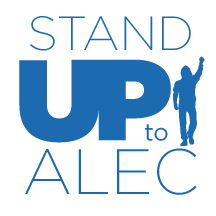Local media outlets across the country published uncritical reports highlighting a conservative influence group’s so-called economic competitiveness report, despite criticism of previous editions of the report over its methodology and findings.
On April 15, the American Legislative Exchange Council (ALEC) published the 2014 edition of its annual “Rich States, Poor States” economic competitiveness ranking, which claims to be “a forward-looking measure of how each state can expect to perform economically.” For the seventh consecutive year, Utah was given the top spot for future economic outlook in 2014; New York was ranked last, and has never risen past 49th place.
Local media outlets quickly picked up the report and mainly discussed their own state’s rankings and the rankings of neighboring states. Conservative radio station WOAI in San Antonio, Texas, published a blog detailing the report; including a quote from co-author and Heritage Foundation economist Steven Moore whom WOAI referred to as an “ALEC analyst”:
A conservative group says Texas is tops in the country in economic activity today, but the American Legislative Exchange Council warns that the state’s economic performance in the future will be rocky, largely because state government is spending too much money.
“That wasn’t the good budget,” ALEC analyst Steven Moore told 1200 WOAI news about the budget approved by the Legislature in 2012. “Not withstanding [sic] all of the very good things that are happening in Texas, and with the very big increase in the size of the economy.”
ALEC ranks Texas no better than 13th nationally in terms of future economic performance.
Despite the uncritical, often glowing, pick-up by local media outlets, ALEC’s competitiveness report has received scrutiny in the past, mostly due to evidence showing that economic data does not comport with the results of their study.

